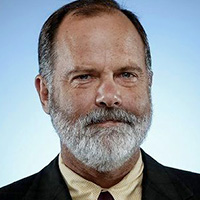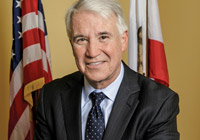In one of his last acts as Attorney General, Jeff Sessions did his best to paralyze beyond hope of recovery the Justice Department’s programs to fight unconstitutional practices by local governments, especially in the area of policing. His seven-page memo, signed as he was wrapping up business, purported to offer guidance to the department as it weighed future litigation and consent decrees to enforce federal law. In fact, the memo’s requirements would strangle future decrees in their cradle. That will have profound ramifications for the department’s role in addressing police abuse, and, as ProPublica reported last week, may constrain the department in other areas – from fighting pollution to enforcing voting rights.
In the area of law enforcement, those decrees typically require police departments to adopt certain reforms – tracking officer behavior, reporting and analyzing each non-trivial use of force and each stop-and-frisk, controlling the use of all lethal and less than lethal force options like shotguns or Tasers, requiring documentation of civilian complaints and other such requirements. Those demands, Sessions has said, “reduce morale of the police officers” and, even worse, allow crime to flourish: “Every place these decrees, and as you’ve mentioned some of these investigations have gone forward, we’ve seen too often big crime increases.” Emphasizing, he added: “I mean big crime increases. Murder doubling and things of that nature.”
That would present a difficult debate: What if consent decrees, by introducing federal oversight, improved the constitutionality of local policing but did so at the expense of officer morale and crime? That would be a challenging choice for government officials.
But is that the case?
Let’s start with officer morale. It’s true that these decrees initially annoyed rank-and-file officers. As a reporter for the Los Angeles Times in 2000, I visited Pittsburgh, the first city to agree to a consent decree that imposed federal oversight on its police department. Officers there were mad. One kooky union leader greeted me at his apartment full of pistols and knives with his throaty opposition to the consent decree. One officer told me she was so afraid of repercussions that the only way she would do a traffic stop “is if some guy blew a red light with a baby tied to the bumper.”
But that was 18 years ago. More recently, I spent time visiting LAPD divisions and was struck by how thoroughly the spirit of the consent decree had infused itself into that organization. The signs at the front desk at one division greeted visitors in three languages; officers boasted of making arrests without complaints or incidents; commanders touted their understanding of housing projects rather than only emphasizing their ability to suppress violence in those communities. These were officers who had joined the LAPD during the years of its consent decree and had absorbed its requirements into their work.
Far from suffering from the decree, they were bolstered by it.
How about crime? It would, of course, be a terrible price to pay if, as Sessions and Trump maintain, putting police departments under federal oversight allowed crime to take over communities and forced residents to suffer. It would suggest that liberal demands regarding police conduct put poor and vulnerable people at risk.
Los Angeles offers a perfect test case. It is the biggest police department ever forced to accept a decree, and the decree there extended over 12 years, so there is a long time period over which to evaluate its effects. If one accepts the Trump/Sessions analysis, those must have been miserable years indeed for those poor residents.
The decree in Los Angeles was entered in 2000. There were 50,132 violent crimes committed in the city that year, including 548 murders. It was a frightening time, especially in poor, largely minority neighborhoods. Violent crimes dropped the year after the decree took effect, but that could just have been a quirk of history; crime does bump up and down without regard to policy. But five years after the decree was entered, the number of violent crimes had dropped to 30,492, with 490 murders. That’s significant progress, and certainly not evidence of things getting worse.
But there’s more. Los Angeles’ decree had been assigned to Judge Gary Feess, and the expectation was that it would last about five years. But Feess would not let the LAPD free of its mandates until he was convinced it had genuinely reformed. Because of that, what had been imagined as a five-year experiment did not end until Feess lifted the decree in May 2013.
By that time, the trend in crime was hard to ignore. For 2012, the final year that LAPD worked under the requirements of the decree, Los Angeles residents experienced 18,293 violent crimes. In that year, 298 people were murdered in Los Angeles.
To recap: Under the decree, violent crime in Los Angeles declined from more than 50,000 incidents a year to under 19,000, and murders dropped from 548 to 298. How does that square with Sessions’ analysis – his contention that “every place” that has been placed under a decree has experienced “big crime increases”?
Consent decrees have not always been welcome in the jurisdictions where the Justice Department has pursued them, but they have improved police behavior and made communities safer. Sessions’ parting shot demonstrates a malign indifference to people of color and other minorities. And it reflects a view of history that is so false it can only be called a lie.
For more information on American police and police accountability, try our partners at the Police Assessment Resource Center: http://www.parc.info
























